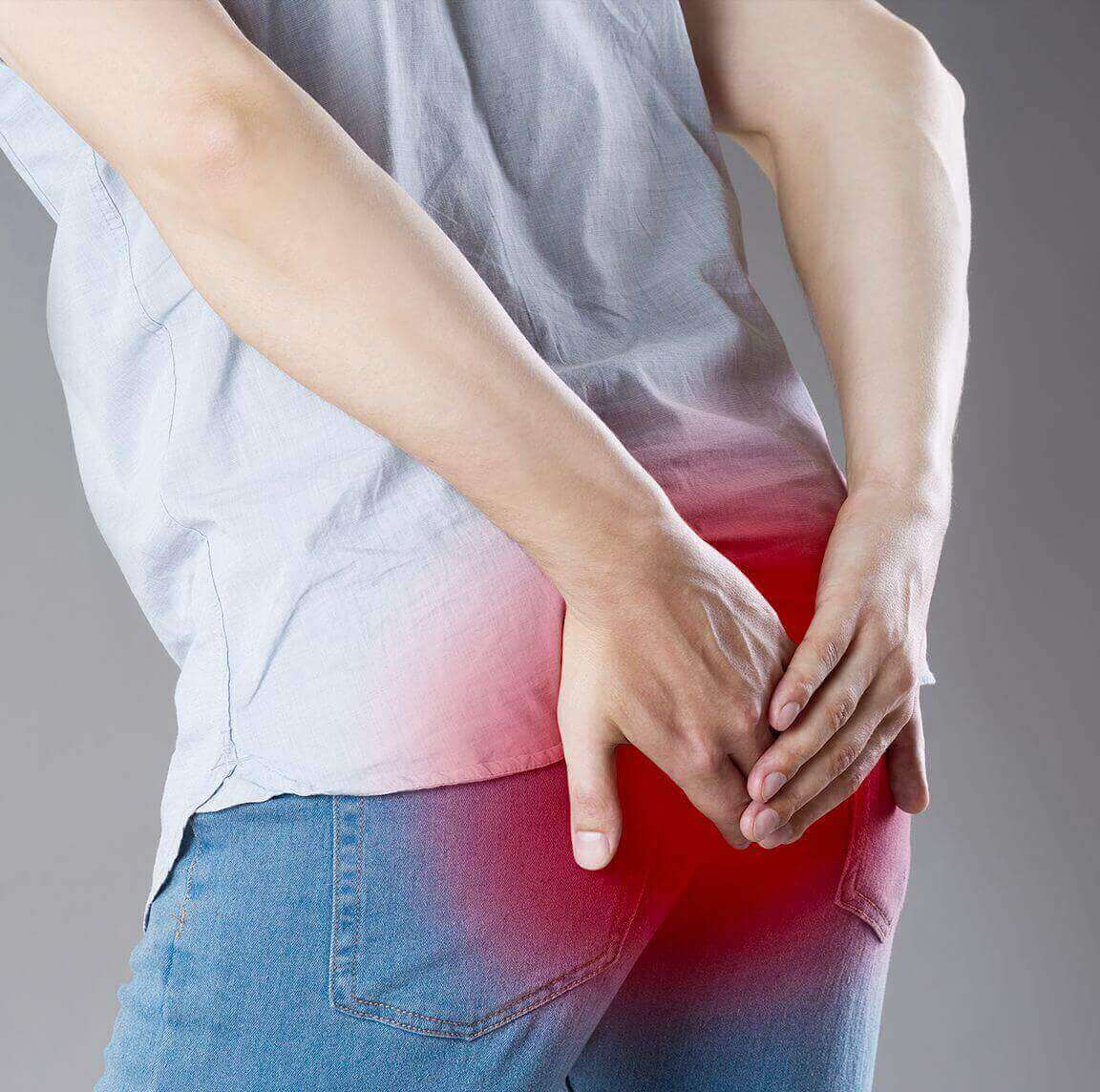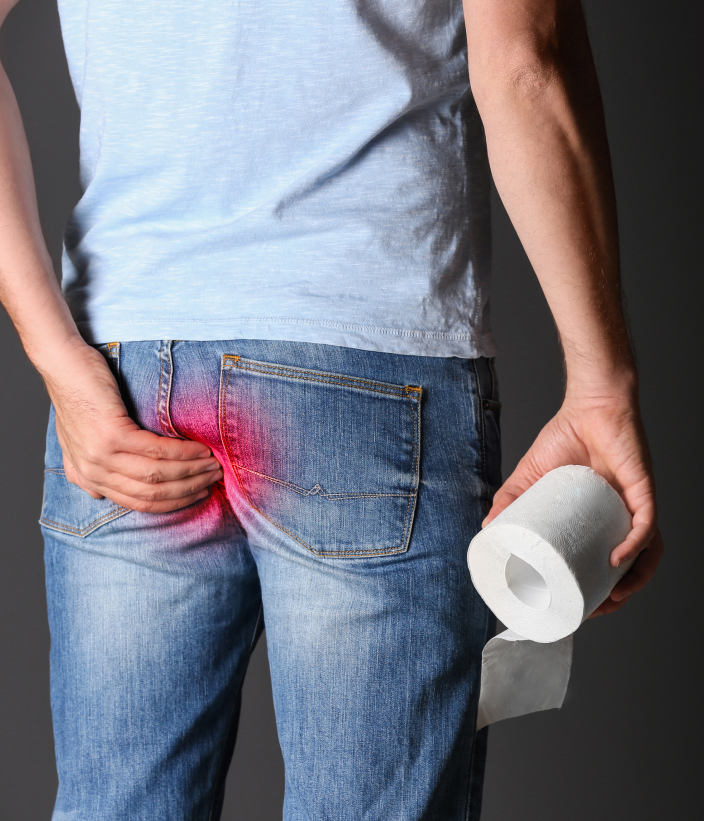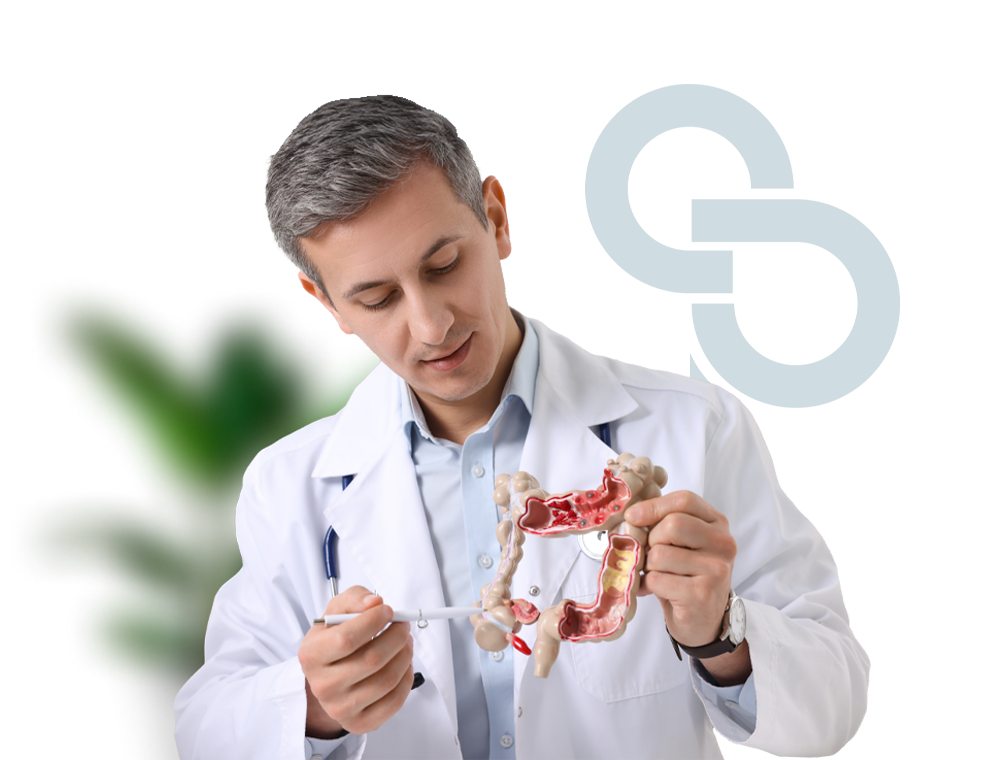We Listen. We Treat. We Care.

Entrust your health and recovery to our dedicated team at Colorectal Practice today.
Get evaluated now
Start a Conversation
Hi! WhatsApp us to enquire now
Our team typically answers quickly.
Managing Anal Conditions
Dr Dennis Koh
Medical Director & Senior Consultant Colorectal Surgeon
MBBS (Nottingham), B Med Sci (Nottingham), MMed (Surgery), FRCS (Edinburgh), FAMS
Dr Sharon Koh
Senior Consultant Colorectal Surgeon
MBBS (Singapore), MMed (Surgery), FRCS (Edinburgh), FAMS
Dr Pauleon Tan
Senior Consultant Colorectal Surgeon
MBBS (Singapore), MMed (Surgery), FRCS (Edinburgh), FAMS

Medical conditions of the anus are fairly common and easily treatable. However, many patients delay seeking medical assistance due to embarrassment. Even though most anal conditions are minor and resolve on their own, some can be debilitating if left untreated.
Common Anal
Conditions We Treat
We are able to provide effective surgical treatment for various anal conditions. These include:
Anal Fissures
These are tears in the anal lining that stem from passing large and hard stools. They are identified by an itchy sensation, severe pain and bleeding during bowel movements.
Main Treatment:
Lateral Internal Sphincterotomy (ILS)
An incision is made in the internal sphincter muscle to reduce pressure and facilitate blood flow to the fissure to promote quicker healing. It is an effective method with a success rate of up to 95%.
Haemorrhoids
These refer to swollen blood vessels that develop in the anorectal area and can be caused by various factors - excessive straining during bowel movements, obesity, pregnancy and genetics.
Main Treatment:
Haemorrhoidectomy and Haemorrhoidopexy
Haemorrhoidectomy is a surgical method that excises large and prolapsed haemorrhoids that do not respond to non-surgical methods. Alternatively, haemorrhoidopexy can also be used to treat haemorrhoids, which involves stapling the haemorrhoid back into place and cutting off blood supply until it falls off naturally.
Anal Fistula
This is a small “tunnel” that forms within the anus and extends to the external skin surrounding it. Typically, it is a result of a failed anal abscess that failed to heal properly.
Main Treatment:
Fistulomy and LIFT Procedure
Fistulomy cuts the fistula open to allow it to heal into a flat scar. In a LIFT procedure, the skin above the fistula is opened up, the sphincter muscles are spread, and the fistula is tied off.
Anal Abscess
An anal abscess is a collection of pus-filled sacs that form around the anus. They are usually caused by an infection or blockage in the anal glands.
Main Treatment:
Surgical Drainage
The most common and effective way to treat an anal abscess make an incision in the sac to allow the pus to drain out.
Bowel Incontinence
This refers to difficulty controlling one’s bowel movements, often the result of muscle or nerve damage, which are caused by aging, childbirth, pelvic floor disorders or other conditions.
Main Treatment:
Sphincteroplasty
This is a reconstructive operation where the sphincter muscles are sewn in an overlapping manner to reinforce the sphincter strength. In some cases, muscle from the thighs are sewn around the sphincter to improve muscle control.
Anal Cancer
Anal cancer occurs when malignant tumours or cancer cells develop in and spread from the anus. Most causes of anal cancer are reported to be caused by the human papillomavirus (HPV).
Main Treatment:
Local Resection and Abdominoperineal Resection
Tumours that have not spread beyond the anus may be removed along with some surrounding normal rectal tissue. The sphincter is left intact to allow for regular bowel movements. An abdominoperineal resection removes both the anus and anal sphincter to treat recurrent and treatment-resistant tumours.


Dr Dennis Koh
Medical Director & Senior Consultant Colorectal Surgeon
MBBS (Nottingham), B Med Sci (Nottingham), MMed (Surgery), FRCS (Edinburgh), FAMS
Dr Dennis Koh is a colorectal surgeon specialising in minimally invasive and advanced endoscopic techniques. He trained in Singapore and Switzerland, where he focused on proctology and pelvic floor disorders. A Fellow of the Royal College of Surgeons of Edinburgh and the Academy of Medicine, Singapore, Dr Koh is also passionate about teaching, having served as Assistant Professor at Duke-NUS and Clinical Senior Lecturer at NUS.
About Dr Dennis Koh

Dr Sharon Koh
Senior Consultant Colorectal Surgeon
MBBS (Singapore), MMed (Surgery), FRCS (Edinburgh), FAMS
Dr Sharon Koh is a fellowship-trained colorectal surgeon with expertise in minimally invasive surgery, advanced endoscopy, and inflammatory bowel disease. She trained in advanced colorectal surgery at Cedars-Sinai Medical Center (USA) and Japan. Formerly Director of Endoscopy at Alexandra Health, she also lectures at NUS and is an active member of local and international colorectal societies like the European Society of Coloproctology.
About Dr Sharon Koh

Dr Pauleon Tan
Senior Consultant Colorectal Surgeon
MBBS (Singapore), MMed (Surgery), FRCS (Edinburgh), FAMS
Dr Pauleon Tan is an experienced colorectal surgeon focusing on minimally invasive surgery, advanced endoscopy and cancer care. After receiving the MOH Health Manpower Development Plan award, he trained in Japan, where he mastered advanced techniques to improve cancer outcomes. Dr Tan has held key roles such as Clinical Director of the Colorectal Cancer Screening Programme at KTPH and is dedicated to delivering patient-centred care.
About Dr Pauleon Tan
We Listen. We Treat. We Care.
Entrust your health and recovery to our dedicated team at Colorectal Practice today. From prompt consults to treatment and recovery, we are committed to seeing you through to a better quality of life.
Our Clinics’ Locations
With a comprehensive network of clinics in Singapore, we stand ready to help you achieve optimal colorectal health.













